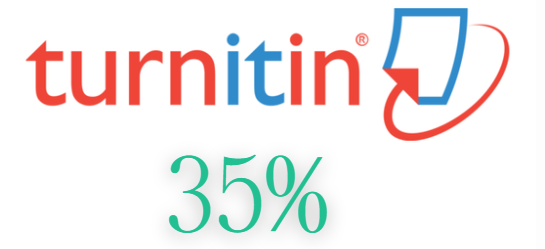Strategy for Developing Science Student Worksheets Based on Concept Maps to Improve Student Learning Outcomes at Elementary School
Kata Kunci:
Concept map, student worksheet, science education, learning outcomes, elementary schoolAbstrak
This study aims to develop and evaluate concept map-based Science Student Worksheets (LKS) to improve learning outcomes of fourth-grade students at SDN XXX. Using a quasi-experimental nonequivalent control group design, two groups were involved: an experimental group using concept map-based LKS and a control group using conventional LKS. The sample consisted of 31 students selected through random sampling. Data were collected through pretests, posttests, expert validations, and student and teacher responses, then analyzed using descriptive statistics, N-Gain, and t-tests. Results showed that the experimental group achieved a higher posttest mean score (85.71) compared to the control group (70.71), with an N-Gain of 0.68 (moderate-high) versus 0.36 (low). Expert validation indicated high validity and practicality (average score 92.5%). Students reported improved conceptual understanding and engagement due to the visual and systematic nature of concept maps. Statistical analysis confirmed a significant positive effect (p < 0.05) of the concept map-based LKS on learning outcomes. This study concludes that concept map-based LKS are effective learning tools for enhancing science conceptual mastery and recommends their broader application and integration with interactive media.Referensi
Apedaile, L. (2020). Using local research as a phenomenon in the classroom. American Biology Teacher, 82(9), 614–618. Scopus. https://doi.org/10.1525/abt.2020.82.9.614
Bloom, J. W. (2010). The really useful elementary science book (p. 214). Scopus. https://doi.org/10.4324/9780203848401
Brooks, E., & Harrison, T. (2024). CHARACTER DEVELOPMENT IN HIGHER EDUCATION*. In The Routledge International Handbook of Multidisciplinary Perspectives on Character Development, Volume I: Conceptualizing and Defining Character (pp. 174–186). Scopus. https://doi.org/10.4324/9781003251248-10
Chen, I.-C., & Hu, S.-C. (2013). Applying computerized concept maps in guiding pupils to reason and solve mathematical problems: The design rationale and effect. Journal of Educational Computing Research, 49(2), 209–223. Scopus. https://doi.org/10.2190/EC.49.2.e
Diwakar, V., Ertmer, P. A., & Nour, A. Y. M. (2007). Helping students learn veterinary physiology through the use of concept maps. Journal of Veterinary Medical Education, 34(5), 652–657. Scopus. https://doi.org/10.3138/jvme.34.5.652
Huynh, Q.-T., & Yang, Y.-C. (2023). Impact of fill-in-the-nodes concept maps on low prior-knowledge students learning chemistry: A study on the learning achievements and attitude toward concept maps. Chemistry Education Research and Practice, 25(1), 360–374. Scopus. https://doi.org/10.1039/d3rp00238a
Kamble, S., & Jagtap, S. (2023a). Use of Concept Mapping as a tool for Education field. 607–611. Scopus. https://doi.org/10.1109/ICAST59062.2023.10454945
Kamble, S., & Jagtap, S. (2023b). Use of Concept Mapping as a tool for Education field. 607–611. Scopus. https://doi.org/10.1109/ICAST59062.2023.10454945
Katagall, R., Dadde, R., Goudar, R. H., & Rao, S. (2015). Concept mapping in education and semantic knowledge representation: An illustrative survey. 48(C), 638–643. Scopus. https://doi.org/10.1016/j.procs.2015.04.146
Marulcu, I., Karakuyu, Y., & Dogan, M. (2013). Can elementary students gather information from concept maps? International Journal of Environmental and Science Education, 8(4), 611–625. Scopus. https://doi.org/10.12973/ijese.2013.223a
McCowan, T. (2019). The role of education in development. In Palgrave Studies in Global Higher Education (pp. 27–58). Scopus. https://doi.org/10.1007/978-3-030-19597-7_2
Merrill, M. L. (2014). The nature of third grade student experiences with concept maps to support learning of science concepts. In Cases on Teaching Critical Thinking through Visual Representation Strategies (pp. 1–37). Scopus. https://doi.org/10.4018/978-1-4666-5816-5.ch001
Miarsyah, M., Sigit, D. V., Ichsan, I. Z., Fadrikal, R., & Suprapto, M. (2019). Lekersmulia: Improving indonesian students’ environmental responsibility using multimedia in environmental learning. International Journal of Scientific and Technology Research, 8(12), 1639–1643. Scopus.
Mulhayatiah, D., Yuningsih, E. K., & Zulfikar, R. M. (2019). Work and Energy by Guided Inquiry Worksheet: Analysis of Critical Thinking Skill in Madrasah. 1155(1). Scopus. https://doi.org/10.1088/1742-6596/1155/1/012072
Nowicki, B. L., Sullivan-Watts, B., Shim, M. K., Young, B., & Pockalny, R. (2013). Factors Influencing Science Content Accuracy in Elementary Inquiry Science Lessons. Research in Science Education, 43(3), 1135–1154. Scopus. https://doi.org/10.1007/s11165-012-9303-4
Pabón-Galán, C. A., Hernández-Suarez, C. A., & Paz-Montes, L. S. (2021). Physics learning based on the use of concept maps. 2102(1). Scopus. https://doi.org/10.1088/1742-6596/2102/1/012006
Pei, W. (2019). Curriculum Reform of Science in Elementary Schools in China. Beijing International Review of Education, 1(2–3), 573–578. Scopus. https://doi.org/10.1163/25902539-00102007
Rahardjanto, A., & Susilowati, R. (2018). Study of Learning Strategy Integration of Science and Religion on the Development of Student Character. Atlantis, 231, 645–648. Scopus. https://doi.org/10.2991/amca-18.2018.178
Raj, T., Chauhan, P., Mehrotra, R., & Sharma, M. (2022). Importance of Critical Thinking in the Education. World Journal of English Language, 12(3), 126–133. Scopus. https://doi.org/10.5430/wjel.v12n3p126
Selvakumar, P., Babitha, B. S., Varalakshmi, S., Mishra, B. R., Bhaskar, P., & Manjunath, T. C. (2025). Learning methods: Techniques for disadvantaged learners. In Mitigating Learner Disadvantages in Teaching and Learning (pp. 207–230). Scopus. https://doi.org/10.4018/979-8-3693-8623-1.ch008
Skopeliti, I. (2022). Learning counter-intuitive explanations from a conceptual change perspective. Psychology, 27(1), 1–9. Scopus. https://doi.org/10.12681/psyhps.30692
Umami, I., Gani, A., & Waskito, T. (2019). Proposal of character and moral education for gifted young scientists in Indonesia. Journal for the Education of Gifted Young Scientists, 7(2), 377–387. Scopus. https://doi.org/10.17478/JEGYS.579560
Upmeier zu Belzen, A., & Beniermann, A. (2020). Naturwissenschaftliche Grundbildung im Fächerkanon der Schule. Zeitschrift Fur Padagogik, 5, 642–665. Scopus.
Xu, L., & He, W. (2014). The application of concept map in the modern educational technology course. 2, 1045–1047. Scopus. https://www.scopus.com/inward/record.uri?eid=2-s2.0-84896678260&partnerID=40&md5=f80f982affc279490e7ee9e69ea0a7bf
Yunefri, Y., Liza, L. O., Novendra, R., & Rizky, R. (2024). Free school lunches: Solution or catalyst for childhood obesity? Journal of Public Health, fdae296. https://doi.org/10.1093/pubmed/fdae296
Zheng, R. Z., & Dahl, L. B. (2009). Using concept maps to enhance students’ prior knowledge in complex learning. In Handbook of Research on Human Performance and Instructional Technology (pp. 163–181). Scopus. https://doi.org/10.4018/978-1-60566-782-9.ch010









